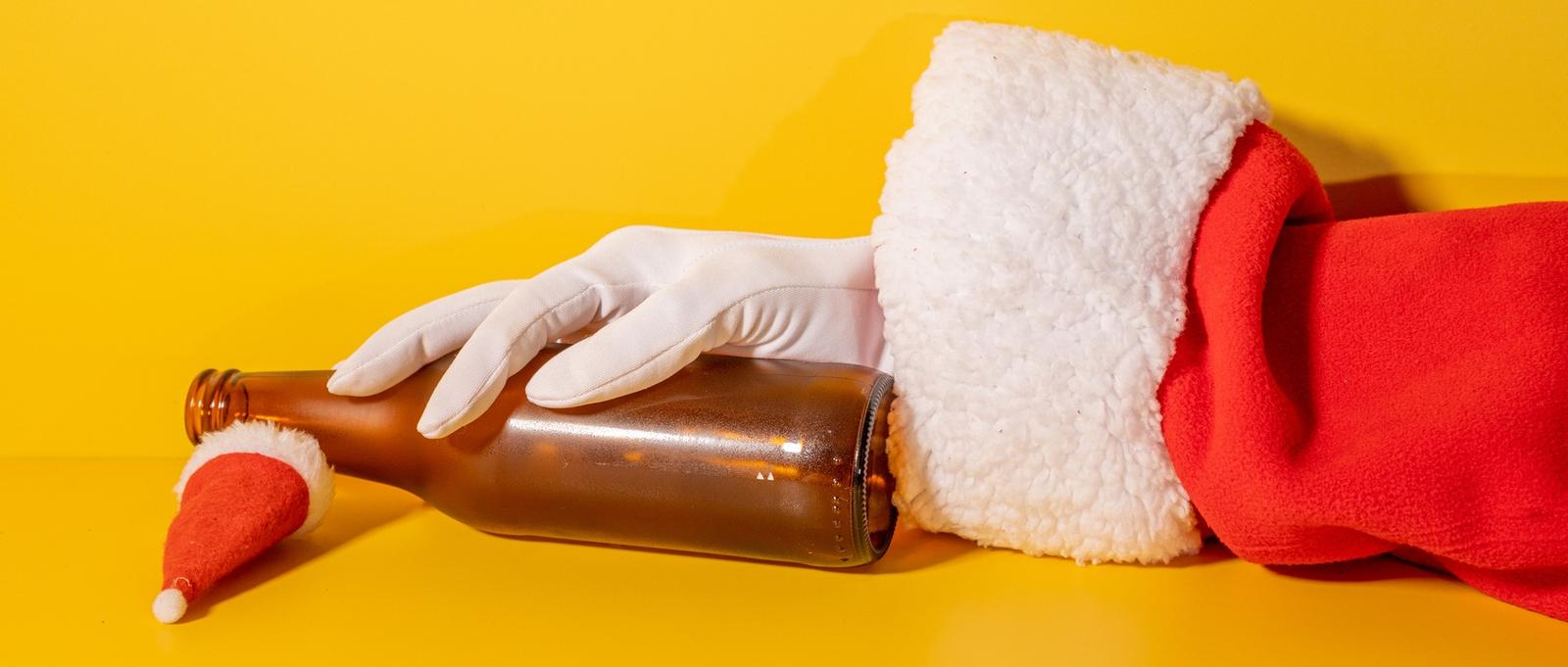
How to drink less over Christmas and the New Year
Peer reviewed by Dr Krishna Vakharia, MRCGPLast updated by Victoria RawLast updated 25 Nov 2024
- DescargarDescargar
- Compartir
Whether you're going to parties with friends or colleagues, it's easy to overdo it with alcohol over Christmas and the New Year. So how can you manage your drinking throughout the festive period?
En este artículo:
Many of us overindulge at Christmas. We meet friends at the pub, crack open the wine with family, and make the most of free fizz with your colleagues at work parties. And although many of us drink too much from time to time - and regret it when we have a hangover - it's easy to fall into the habit of unhealthy drinking.
Seguir leyendo
How drinking too much affects your health
Drinking too much can lead to serious health consequences - both mental and physical.
Jennifer Walters, Executive Director of Social Change at Mind, and former spokesperson for the UK charity Drinkaware says: "In the short term, alcohol can affect your sleep and your weight, and impair your judgement. Alcohol is the second biggest health hazard for developing cancer - after smoking."
She explains that - in the long term - drinking above the recommended guidelines increases your chance of seven types of cancer, including breast, liver and mouth cancer. Other effects include raised blood pressure, liver disease, brain damage and mental health problems.
Stephen Buckley, Head of Information, Mind adds: "Many of us drink more than usual at Christmas. While for most it's not a huge problem, becoming dependent on alcohol can affect your mental health. It may cause difficulty thinking clearly or problem solving, and trigger feelings of anxiety."
This is because alcohol is a depressant and regularly drinking too much disrupts the balance of chemicals in our brain that affect mood.
Walters says: "Drinking heavily and regularly is associated with symptoms of depression, although it can be difficult to separate cause and effect. Reducing or stopping drinking can improve mood. To look after our mental health, reducing how much we drink is an important first step."
Although feeling anxious or sad when you're hungover is very different to experiencing depression - which is marked by long-term feelings of sadness or despair - it can still be unpleasant. Managing how much you drink on a night out can help you avoid hangovers and the accompanied feelings of anxiety or low mood.
Selección de pacientes Consejos sobre el alcohol

Bebidas cetónicas: ¿una alternativa efervescente y segura al alcohol?
Las bebidas cetónicas se comercializan como bebidas sin alcohol que pueden producir un colocón similar al de beber dos o tres vasos de cerveza o vino. Pero, ¿qué dice la ciencia? Antes de invertir, te explicamos qué son las cetonas, analizamos sus beneficios demostrados para la salud y nos preguntamos si las anécdotas de TikTok y las afirmaciones de marketing están eclipsando los hechos en lo que respecta al colocón sin alcohol.
por Amberley Davis

Salud digestiva
Abstinencia de alcohol y desintoxicación alcohólica
Muchas personas que beben regularmente cantidades excesivas de alcohol se vuelven dependientes del mismo. Esto puede causar graves daños al organismo. Existe mucha ayuda para las personas dependientes del alcohol que quieren dejar de beber.
por la Dra. Hayley Willacy, FRCGP
How to cut down your drinking over Christmas
Cutting down your intake of alcohol isn't always easy, but there are steps you can take to reduce it.
The guidelines for both men and women are to drink no more than 14 units a week - around six medium glasses of wine or six pints of beer. If you regularly drink as much as 14 units per week, it is best to spread your drinking evenly over three or more days.
Know your triggers
Understanding why you drink can help you manage your drinking. People, places, times and emotions - such as feeling sad or happy - can also be linked to drinking alcohol.
"Think about what your own personal triggers to drink alcohol are and how you can change your behaviour to fit your lifestyle," Walters advises. "It might help to talk to someone about it - a friend, your doctor or anonymously with a trained professional over the phone.
"To succeed in reducing your drinking you may need to break associations. For example, if you tend to reach for a drink when you come home from work - or stop work if you're working from home - plan an alternative activity to try to break this link. You could go for a walk or read your favourite book instead."
Avoid 'all or nothing' thinking
If you've cut back on your drinking and you've been doing well, it's easy to feel you've blown it completely if you slip up. However, it’s important to avoid this 'all or nothing' thinking.
"Remember this is all about moderation to be kind to yourself and get back on track as soon as possible," says Walters. "Reducing your drinking is a marathon, not a sprint, so take it day by day. Focusing on one day at a time will help the journey feel more manageable."
Obtener ayuda
Telling your friends and family about your goals over Christmas can help them understand why you may turn down drinks, or perhaps taking up new activities in place of drinking. Getting their support can also help you stick to your goals.
Walters says: "There are times when friends and family might not be as supportive as you'd like and they may not even realise it. If this is the case, remind yourself of your 'why' and that you alone are in control of your decisions."
It's also important to remember the festive season can be very hard for some people, especially those who are isolated.
"If you're worried about your own drinking or someone else's, it's more important than ever that you stay connected to people by phone or video calls to seek or offer support and strength by talking to someone," adds Walters.
You can do this anonymously in online groups, with trained advisors and counsellors or with friends or family. Organisations including Drinkaware, AA and the Alcohol Health Alliance offer advice, support and resources.
It can help to speak with your doctor if you think you have a problem with alcohol. They can provide advice on the best course of action for you.
Be prepared
Here are some tips to help you drink less over Christmas:
There are apps you can download to help keep track of how much alcohol you are drinking, such as the Drinkaware app.
If you are planning to see family or friends, try to come up with activities at home that don't necessarily involve drinking - for example, a games night.
If other people will be drinking, stock up on alcohol-free options.
It's easy to underestimate the amount you're drinking, especially if you're drinking spirits at home - what you assume is a single measure could easily be two or three. Use a drink measure to keep tabs on the number of units you're drinking.
Historia del artículo
La información de esta página ha sido revisada por médicos cualificados.
Fecha prevista para la próxima revisión: 25 nov 2027
25 Nov 2024 | Latest version
23 Dec 2020 | Originally published
Autores:
Lydia Smith

Pregunte, comparta, conecte.
Explore debates, formule preguntas y comparta experiencias sobre cientos de temas de salud.

¿Se encuentra mal?
Evalúe sus síntomas en línea de forma gratuita